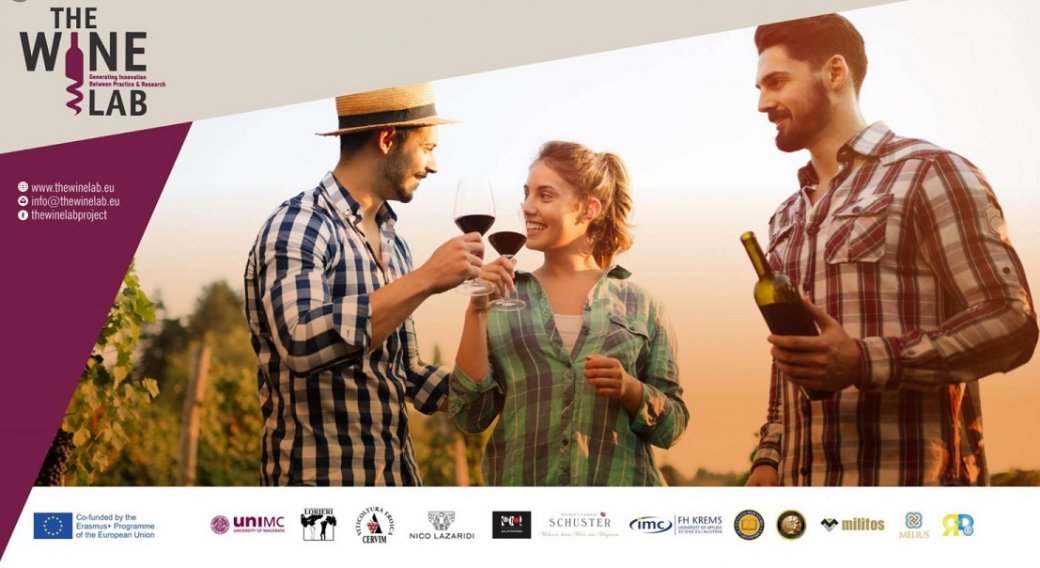Project "The WineLab" - Erasmus+ program
The Wine Lab - Generating Innovation between Practice and Research - is a project created to create relationships between Universities and small wineries operating in disadvantaged areas, in order to increase territorial development

The Wine Lab is a project presented and approved under the European Erasmus Programme, created to create virtuous relationships between Universities and small wineries operating in disadvantaged areas, in order to increase territorial development.
The project brings together a transnational consortium of 5 European countries, such as Italy, Austria, Hungary, Greece and Cyprus. The 12 partners, each experienced in their field, provide their own experiences that become complementary with those of others.
There are Universities with related research activities, including the University of Macerata, also designated as project leader, the Austrian University of Krems "IMC University of Applied Sciences Krems", the Faculty of Economics of the Hungarian University "University of Pannonia" and the Macedonian Institute of Technology "Eastern Macedonia and Thrace Institute of Technology (TAIKAV)".
As a Research Centre in the wine sector, the project sees as the only actor the Cervim that deals with research, study and enhancement for the viticulture of mountain and small islands.
Some small wineries located in disadvantaged areas of the countries involved in the project, give their contribution, representing the part that operates on the ground. Tra queste troviamo l’azienda vitivinicola italiana “Podere La Scurtarola” del nord della Toscana, l’azienda vitivinicola macedone “Nico Lazaridi Wiac SA”, l’azienda vitivinicola austriaca “Weingut Schuster” e l’azienda vitivinicola ungherese “Koczor”.
Other business partners specialize in consulting, such as the Italian company "Cramars Società Cooperativa Sociale" and the Greek "Militos Emerging Technologies and Service S.A." , or in evaluation and ICT solutions, such as the "R & Do" company in Cyprus.
In any industry, small businesses must have adequate preparation in terms of sales, orders, marketing, packaging, shipping, etc.
In the wine-growing sector, small holdings also face problems linked to the territory (small vineyards, often not adjacent or arranged on terraces), a high number of hours of labour (from 800 to 1600 hours/ha/year) and ampelographic fragmentation with greater presence of native vines in small quantities.
The Wine Lab project has set several goals to be achieved over the three years of its duration, including:
- create hubs, namely interest groups and learning communities involving wine producers, researchers, university students, public and private entities in the wine sector;
- determine new forms of cooperation between universities and enterprises to increase training opportunities (traineeships);
- develop mechanisms for the structured sharing of knowledge between research and business;
- create tools to provide timely and personalised responses to learning needs (ad hoc learning materials);
- define innovative methods and tools to exploit knowledge at regional level and link it to national and European level;
- develop debates through dialogue between regional hubs and policy-makers.
The project ended in December 2019.